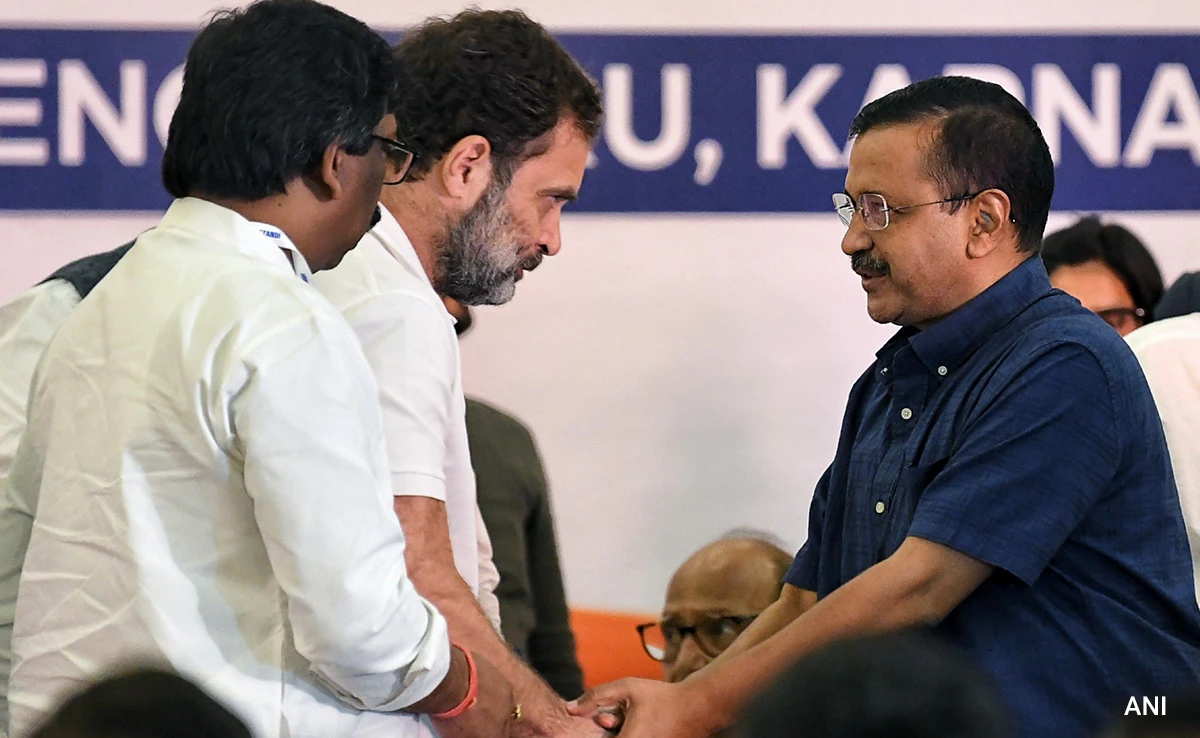NEW DELHI: The consequences of spreading lies during elections can be dangerous for democracy. Even today, a popular Bollywood folk song, “Jhooth bole kauwa kaate, kaale kauwe se dare,” resonates across the nation and the world. Few might remember that this song was penned by Viththal Bhai Patel, a prominent politician from Madhya Pradesh, and a member of a respected business family. He was associated with the Congress party during the Indira-Rajiv era and served as a minister in the Madhya Pradesh government.
However, due to his straightforwardness in public statements, speeches, and even his songs and poems, he often found himself at odds with many leaders in the state. Over the years, his influence was observed closely even in the Delhi corridors due to his family’s connections.
In the current scenario, accusations and counter-accusations during the Lok Sabha elections have brought attention to the unsubstantiated and misleading statements made by some top leaders. Not only Viththal Bhai but many leaders in Indian politics from various parties have been staunch opponents of spreading falsehoods. They believe that such actions not only undermine the credibility of individuals and parties but also create tension and disillusionment among the innocent public.
In this context, the statements and speeches of Congress leader Rahul Gandhi and Aam Aadmi Party chief Arvind Kejriwal are particularly contentious and distressing. While criticism of the ruling Prime Minister, government, and party is natural and appropriate for the opposition leaders, deliberately spreading untrue “information” to incite public sentiment is unacceptable.
Since the Bharatiya Janata Party came to power in 2014, central agencies have conducted numerous raids related to money laundering cases. Under the BJP-led government, agencies like the Enforcement Directorate have arrested hundreds of individuals and seized assets worth billions of rupees. However, there have been concerns about bias and improper judgments in these investigations.
It raises questions about how the government and agencies can be held accountable. Are Rahul Gandhi, Kejriwal, and their supporters politicizing such actions entirely? By doing so, are they casting doubt on the entire administrative and judicial system?
When they claim that they will defeat Prime Minister Narendra Modi and the BJP in this election, will they stop such investigations and legal actions, and will they remove officials from these departments? Ultimately, while political parties change in a democracy, the entire administrative and legal system should not undergo such transformations.
Similar doubts are being raised about the audacious actions taken by the Army along the borders of Pakistan and China. It’s important to remember that the military isn’t affiliated with any political party. The trust in the military is based on its ability to combat terrorism and secure the borders. Demanding proof of actions like the Balakot airstrike is not just shameful, but now, even in the face of the encounter where 29 Maoist insurgents were killed in a gunfight in Bastar, Congress leaders are expressing opposition. They are calling it a fake encounter and referring to armed criminals as martyrs. How can they forget the more than 20 Congress leaders, including former Chief Minister Bhupesh Baghel, who were killed by Naxal groups? Spreading falsehoods in support of terrorists and Maoists under the guise of alleged human rights violations is nothing short of a grave sin.
Rahul Gandhi’s disagreement with the Agniveer recruitment plan might lead to delays or modifications. However, this decision isn’t solely the government’s, it’s made after consulting military chiefs, former officers, and others. But Rahul and his allies are not only weakening the Army but also disrespecting the sacrifices of young soldiers by not honouring them like other martyrs’ families and not providing equal compensation.
Recently, a family of a fallen soldier was given compensation of over a crore rupees and other honours.
International Monetary Fund forecasts that India will have the world’s third-largest economy by 2027. The number of Micro, Small, and Medium Enterprises (MSMEs) has reached 7.5 crores, benefiting millions of families through rural and cottage industry work.
However, Rahul is spreading the misconception that only a couple of families like Adani and Ambani are benefiting from everything. But are companies like Tata, Birla, Kirloskar, Mittal, Hinduja, Jindal, Sun Pharma, and Godrej not progressing? Aren’t there exports worth billions or foreign investments? Are small artisans, shopkeepers, and skilled workers not seeing an increase in income? By spreading false propaganda on caste-based discrimination and on increasing government jobs, leaders are not only harming themselves but also society.

